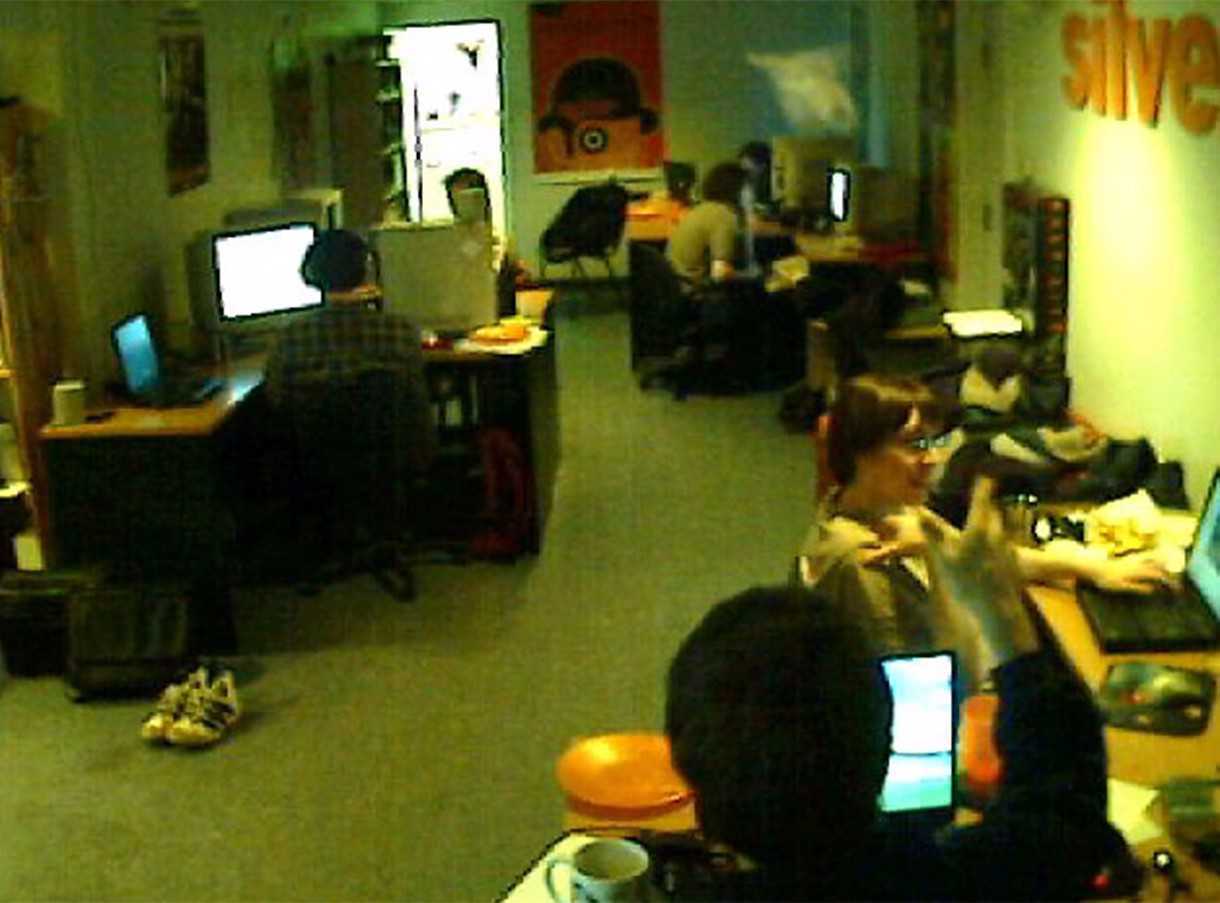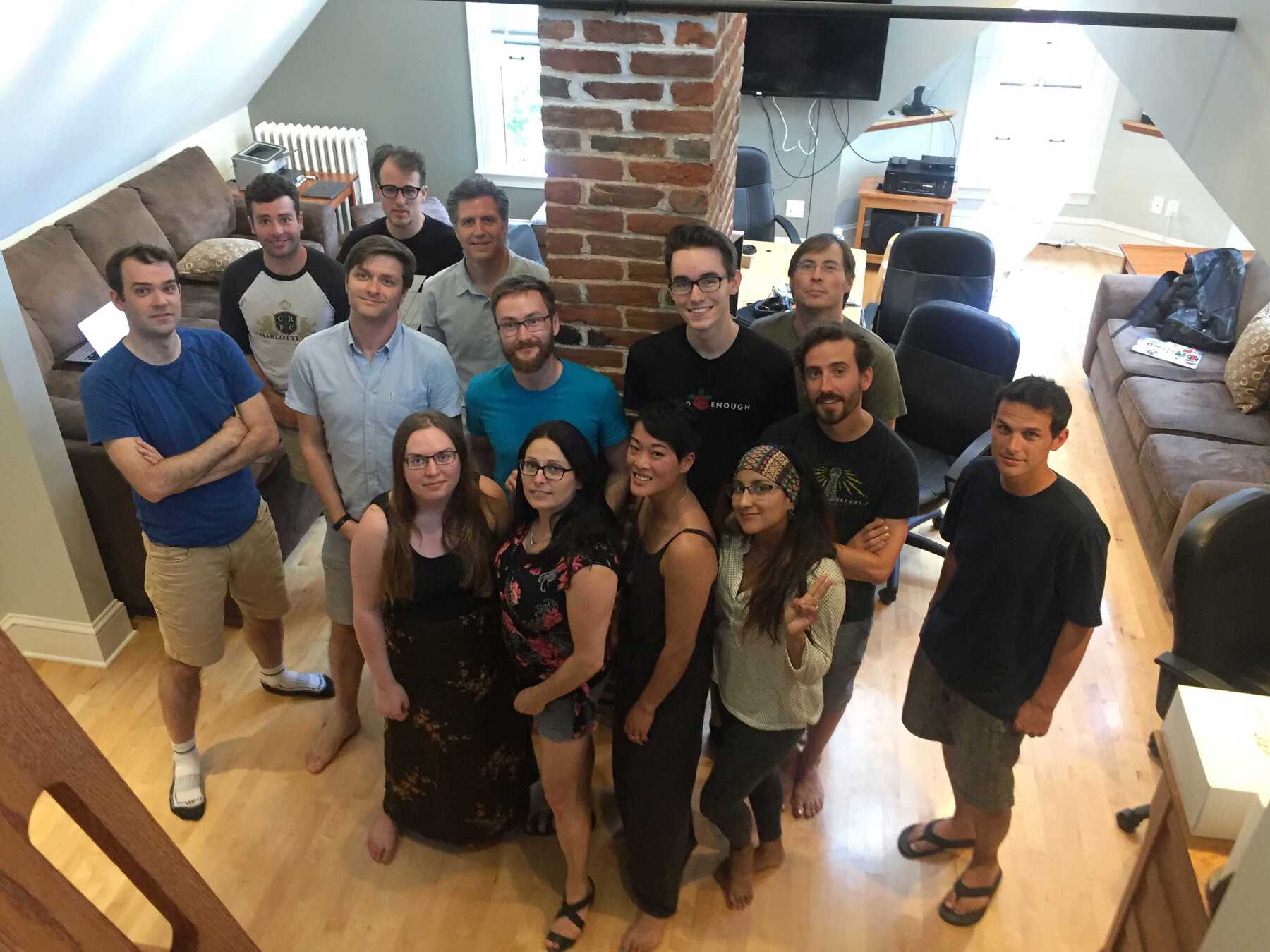A company on the verge of adulthood
Reflecting on the ways we’ve matured as silverorange enters its 19th year.

In the beginning
silverorange was founded 18 years ago by a group of seven young men with a fairly homogeneous set of backgrounds and life experiences. We were all white, all male, and all middle-class—and though I expect we didn’t understand it at the time, we enjoyed the privilege that comes from this type of situation. We had time to spare, access to technology at home and at school, and were encouraged to be technical and entrepreneurial at every turn.
This shared life experience afforded us an automatic set of cultural touch points. Music, movies, games—these were tastes and interests likely to be shared across the whole group.
We considered ourselves to be fairly liberal and progressive. We thought of ourselves as “good guys”. We decided early on that the purpose of the company was to serve as a platform from which we could live interesting and fulfilling lives. The company was not an end in of itself.

The circumstances of our lives were also quite similar. We were all in our late teens, most still living with our parents and attending high school or university. There were no kids, no partners, and no mortgages.
Our commonalities allowed us to make assumptions: You probably won’t be offended by this joke; You can probably stay at the office playing games until 11pm (and you probably want to).
The slow descent into regressive humour
I recall an interview with the Beastie Boys where they talked about how their style and behaviour was originally based on a parody of the dumb party-animal lifestyle. After living this parody for long enough, they lost sight of whether they were even joking anymore.

We fell into a similar trap. We developed a stupid “ironic” (questionable quotation marks used intentionally) insider joke culture. When I made a sexist or racist comment, I was making a social commentary! I felt it was obvious that I was mocking people who make those types of comments earnestly. I would never say something in front of someone who didn’t know me well enough to know I was obviously being sarcastic. I didn’t understand that Obvious to You is Not the Same as Obvious.
Eventually though, if you make a sexist or racist joke, even if you think you’re being sarcastic, you’re still a person being sexist or racist by making an offensive joke.
“Irony doesn’t scale...” — Paul Ford
To be fair, this behaviour wasn’t shared by everyone on the team, nor was it spread evenly among those who did participate. As a key participant, I’m mostly criticizing myself.
Baby steps
As our company grew, we inched toward a slightly less uniform team. Among the founders, we also diverged in our own places in our lives at different rates and in different directions. People began to travel, complete different levels of post-secondary education, establish homes, and form significant relationships with spouses and partners.
We even hired a woman!
With a woman joining a team of well-intentioned, but immature young men, the opportunity for failure (on the part of the young men) was obvious and we failed many times. One glaring example arose when our only female employee needed to take maternity leave.
What was our parental leave policy? We didn’t need policies! If you need time, take it. If you find yourself in uncharted territory, chart it! Never mind that you may be an employee and not an owner, unclear of the boundaries.
We thought we were being generous and even “progressive” with our unlimited vacation policy. We didn’t realize at the time that when we said to “take as much vacation time as you like”, what we were really saying was “figure out what unspoken amount of vacation time we consider reasonable”. What we thought was a benefit was at best a burden, and at worst a minefield.
A few years after our first female employee was left to sort out her own parental leave, the founders started to have kids of their own. Only then, as we granted ourselves ample (and ill-defined) parental leave, did we learn that our unfortunate trailblazer ended up back to work much sooner that she would have liked.
The unfortunate issue of ill-defined parental leave may seem like an obvious issue in hindsight (there’s that word again—obvious). It wasn’t obvious to a bunch of twenty-year-old single guys with no management experience (and limited life experience). Almost twenty years later, I have to wonder what obvious issues we’re missing today.
Good news: change is easy!
We’ve discovered that it’s both hard and easy to change the culture of a company. At one of our annual company retreats, we were discussing ways to improve our team over the coming year and one of our employees made a revolutionary suggestion:
We should be nicer to each other!
He was referring mostly to a culture of sarcastic insults we had grown accustomed to, but we all agreed that treating each other with more respect was worth a shot. It seemed like a good opportunity to shed our ironically ugly humour. As one of the key culprits, I can safely say that in addition to being unnecessarily negative, it just wasn’t funny. We don’t miss it.
This small initial change was surprisingly abrupt and surprisingly easy. It seemed like only a matter of days before what had been totally normalized started to stick out as inappropriate. We even came to refer to the echoes of our former vulgarity as “old office humour”—a phrase we still use as a reminder/warning to ourselves.
If we hadn’t addressed this glaring surface-level ugly tone in our humour, making our team more diverse would have been much more difficult.
Bad news: change is hard
These relatively easy changes had a surprising impact on our company. Still, they weren’t enough to make us into a more diverse and empathetic team.
The primary way we’ve been trying to address our blind spots is, first, by becoming a more diverse team. If we’re not all the same age, gender, sexual identity, or ethnicity, the number of blind spots that will be visible to at least some of us drops off.
The second way of reducing such potential blind spots is to build systems. When we fall down, we try to put systems in place that will keep us from relying solely on being attentive and empathetic in order to avoid such mistakes. Regular check-ins and better-documented practices are two simple examples of such systems.
We’ll always make mistakes, but endlessly repeating easily avoidable mistakes is inexcusable.
That example of parental leave is one we’re quite familiar with now (there are 13 kids-of-silveroranges as of this writing). That said, there are other key life experiences that we don’t yet have experience with. Deaths, major illnesses, and on a more positive note, retirement, are all examples of inevitable milestones we have yet to experience. More concerning still are the issues that I couldn’t name that we’ll surely come to confront.
Taking stock and looking forward
We’re coming up on our twenty-year anniversary. It took us more than a decade to really get started, but we’re now working hard to become a more welcoming environment to more people. In our hiring, we’re trying to carefully craft the language in our job postings to convey this progress (or at least intended progress). We’re also trying to get our job postings into places more likely to be seen by those in traditionally underrepresented groups.

While our progress has been slow and late to get started, the good news is that being more diverse can make it easier to become more diverse. Pessimistically, this may seem like a catch-22, but if you can get things started, progress can compound and accelerate.
That first female employee is now part of our executive team and is our CFO. Though she worked as the only woman on the team for years, she is now part of a team that has become more inclusive and diverse, one that dropped from being 80% to 60% men in the last 12 months while growing from 10 to 15 people. It’s not enough, but we hope that our changing demographics will help attract talent and continue to improve the diversity of our team.
You don’t need to be part of a marginalized group to enjoy the benefits of a more welcoming environment. A friend of mine noted a pride flag sticker on the window of local Catholic Family Services Bureau office. Even a small symbol like this is a reminder that seeing anyone feel welcome can make everyone feel more welcome.
The work continues.
Thanks to everyone at silverorange who helped with editing, feedback, and guidance, especially Kristen, Isa, & Nick.
